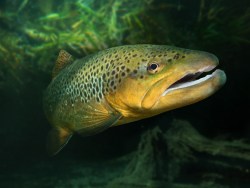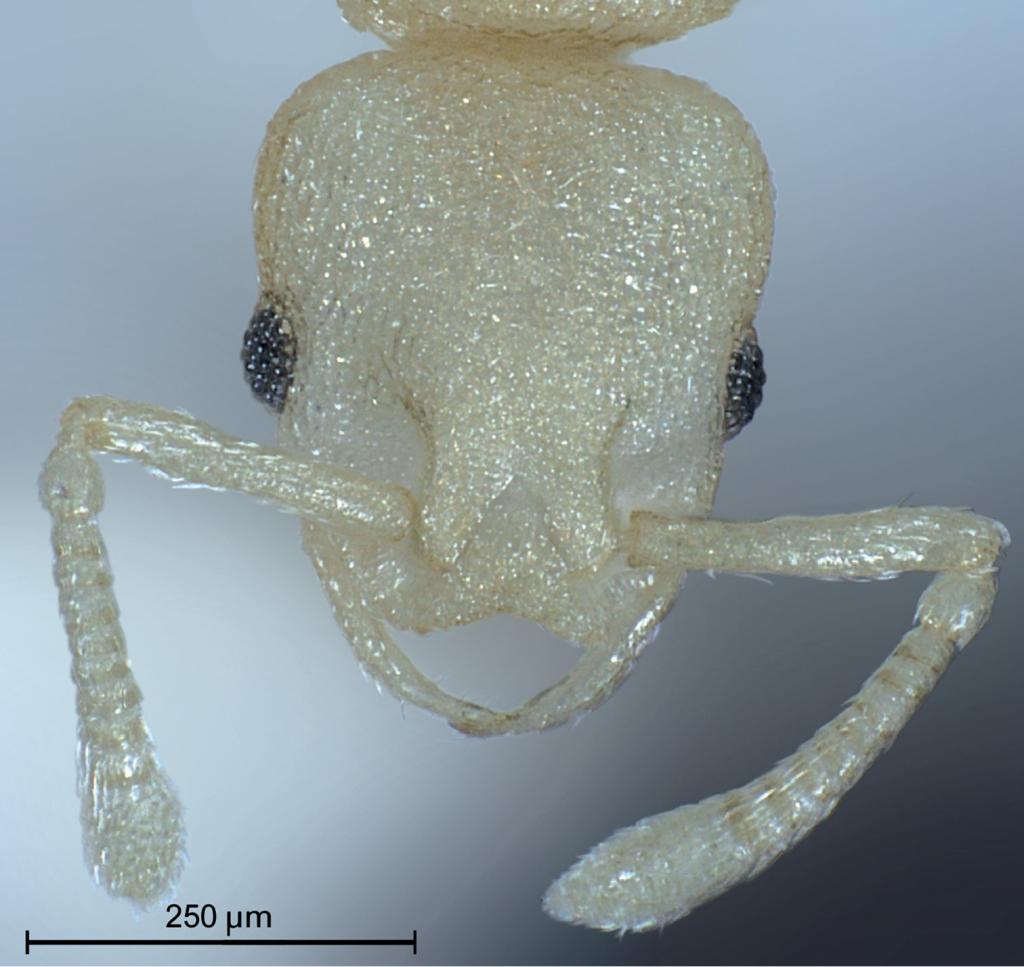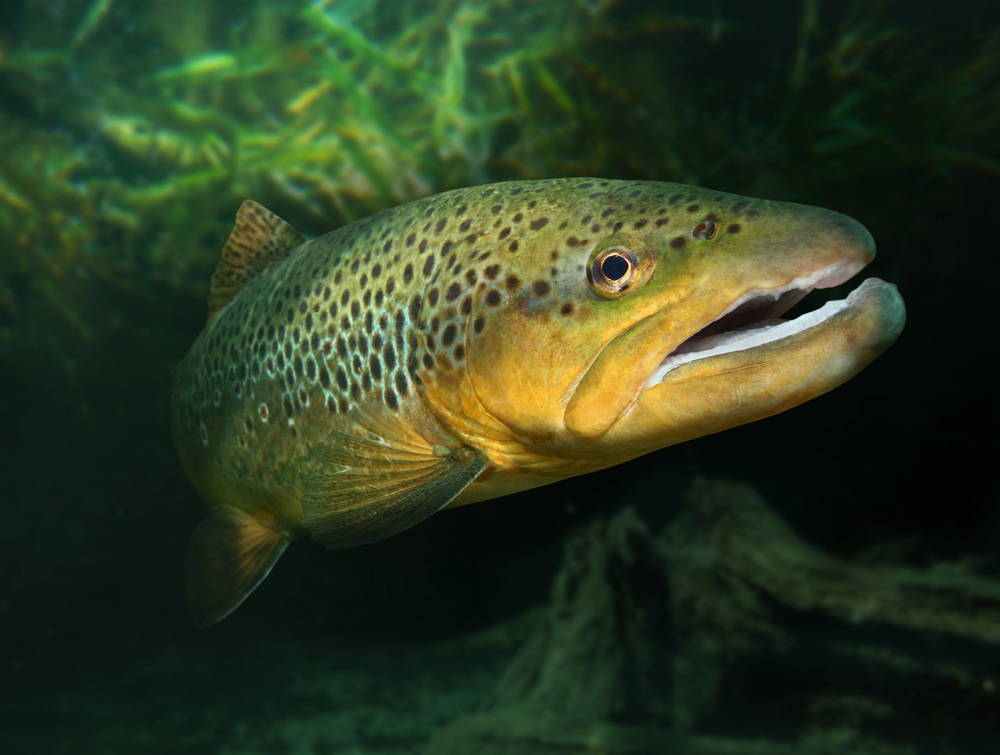
ShutterstockBrown trout sans frankengenes.
Interspecies hanky-panky is a thing, in case you didn’t know. Sometimes love, or perhaps a blindly primeval desire to reproduce, can lead one species of animal to breed with another. Think of a liger, for example — a hybrid of a lion and a tiger. Or a mule, which has a donkey for a father and a horse for a mother. And, every once in a while, an Atlantic salmon will mate with a brown trout.
The U.S. Food and Drug Administration appears poised to approve the sale of genetically engineered AquAdvantage® salmon this year, despite significant aversion to the very idea of the frankenfish. If the transgenic Atlantic salmon escapes into the wild, environmentalists worry that the fast-growing fish could breed with wild Atlantic salmon and throw natural populations into unpredictable turmoil. Which got scientists to wondering: What if transgenic Atlantic salmon got loose and bred with wild brown trout? Could AquAdvantage fish sow their freaky oats over a species barrier?
The answer, according to scientists who ran experiments with the fish, is yes. Yes they can. Not only that, but the hybrid offspring can inherit the turbo growth genes and grow at a remarkable pace, outcompeting both natural salmon and transgenic salmon for food.
From a paper published Wednesday by Canadian researchers in the journal Proceedings of the Royal Society B (the “B” stands for biology, by the way):
To the best of our knowledge, this is the first demonstration of environmental impacts of hybridization between a GM animal and a closely related species.
When the fish were placed in a mocked-up stream inside the laboratory, the researchers found that the hybrids were out-competing both the genetically modified salmon and wild salmon, significantly stunting their growth.
“This was likely a result of competition for limited food resources,” explained [Darek] Moreau [of the Memorial University of Newfoundland, Canada].
The researchers said this study highlighted the ecological consequences should genetically modified fish get into the wild.
They acknowledged that the risks of such an escape and subsequent encounter with a brown trout were low, but said this information should still be taken into account by those who are regulating GM animals.
AquaBounty, the company behind AquAdvantage salmon, says its fish won’t escape into the wild. It’s impossible, the company assures us, because the fast-growing fish would all be sterile females kept in tanks on land. Yet, as Jeff Goldblum’s character reminds us after he’s told that velociraptors in Jurassic Park could never breed because they are all engineered to be female, “life finds a way.”
Just ask the farmer in Oregon who recently discovered illegal GMO wheat growing on his property, years after Monsanto stopped field trials of the Roundup-ready wheat and dropped its development altogether. That should also have been impossible. Yet here we are.



